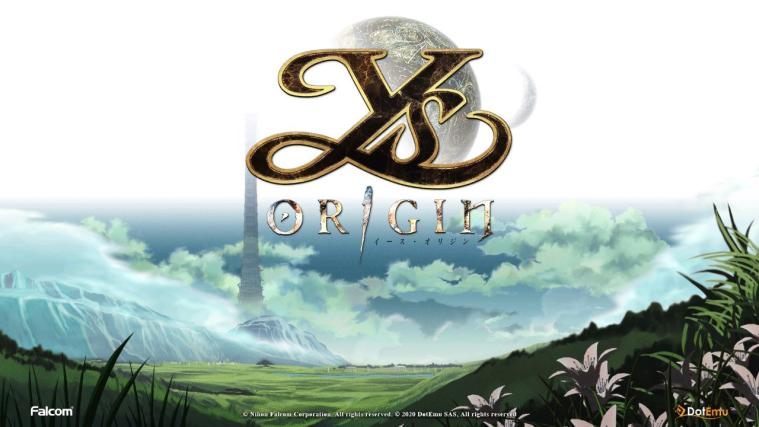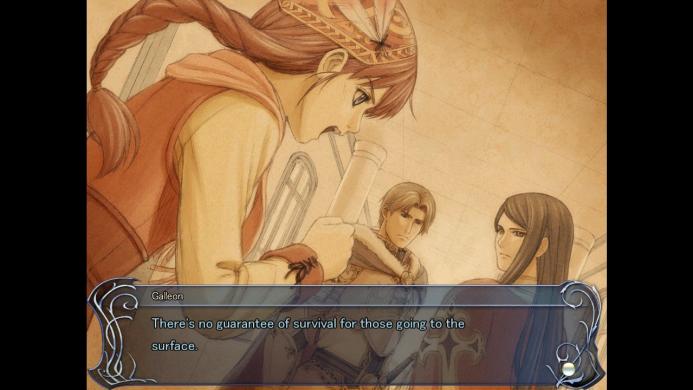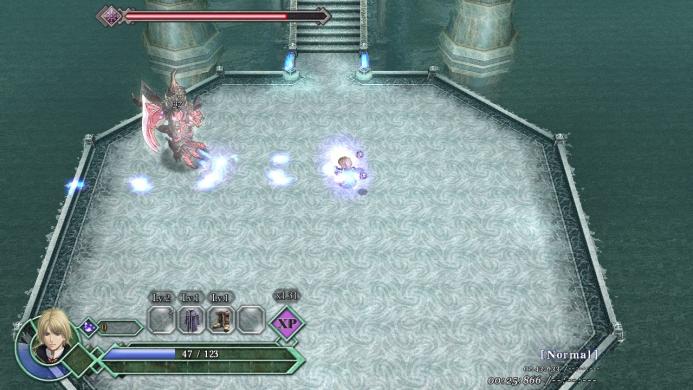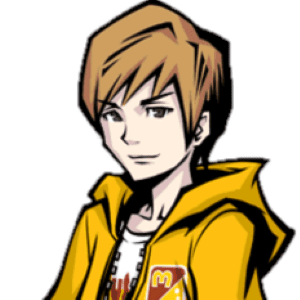I wasn’t expecting to return to a Falcom RPG so soon after my Trails from Zero review, but today’s review is something special. By the generous and continued support of our most benevolent patron TheJoyfulMind, he has won for himself the right to request a game for us to review, making this the very first review of its kind! We are beyond humbled by his confidence in our mission, and I shall endeavor to put all I have into this critical examination. Just so, for today’s title represents a shift away from pretty much every convention I know of Falcom, and what I played through was certainly an experience worthy of my journalistic interest. Let us dive right in!

Originally developed by Nihon Falcom in 2006, and updated and published by Dotemu, Ys Origin is an action-rpg released in 2020 for Nintendo Switch. Its premise involves a band of knights and sorcerers descending from their haven in the sky to investigate a giant demon tower and the adversaries they meet along the way. Players interact with the game through action combat, environmental exploration, character upgrading, and reading dialogue. Bear in mind that the game has been released before on Playstation 4 and Xbox One a few years earlier by Dotemu, and for Windows computers by Xseed Games. This review is over the Nintendo Switch version, and differences may exist depending on the version you buy, especially the Xseed release.
Allow me to begin with a brief explanation on Ys Origin as a part of a greater series. The Ys games were the first outings for Falcom as a developer which landed them on the map as pioneers of the action-role-playing genre, and they have continued up to the modern day as a series renowned for its inventive combat systems. There isn’t much in the way of grand overarching narrative however, with the main series being described to me as flipping through the journal of its protagonist Adol and stopping to read a particular adventure. There are of course overlapping characters and references here and there, but for the most part the games are standalone. Ys Origin takes this episodic nature to an extreme, being a prequel that takes place hundreds of years before the main series and by virtue of this requires absolutely no knowledge of the rest of the series. I played it without first checking out the other Ys games, and neither do you have to. I’m probably kinda famous for that given my stunt with Trails of Cold Steel III and IV anyway.
The story of Ys Origin takes place in the titular land of Ys and follows the tales of Yunica Tovah and Hugo Fact. After a great demonic invasion, the surviving people of Ys fled to live floating in the sky with the help of their goddesses Reah and Feena and their artifact known as the Black Pearl. When the goddesses disappear from the floating shrine one day, the people of Ys organize a search party made up of the best of the Holy Knights, which includes Yunica despite being an apprentice knight with no ability to use magic. They are also accompanied by talented mages who serve the country in a clerical capacity, one of which being the prodigy and heir to House Fact, Hugo. This fellowship descends to the surface world and discovers a tower filled with demons lying below their floating refuge, which they all set off to investigate as the place where their goddesses have seemingly made off to.
The central plot of Ys Origin is overall pretty simple and well executed, but I did find buying into its world and premise kind of difficult on account of its portrayal of its twin goddesses. Rhea and Feena are explicitly shown to be as fallible as any mortal, and I constantly found their presence in the story incredibly distracting as a result. A princess falling prey to unexpected complications is one thing, but beings which are supposed to be ‘that which is above all else’ falling prey is another matter entirely, and I’m not talking about them willingly enduring suffering like Lord Jesus. It’s honestly kind of surreal to me that I found a video game where I could listen to my protagonist talk about how stupid and secretive his own gods are acting and completely agree with him. While I understand this is the sort of complaint that would be levied only by someone who takes the definition of what a god is dead seriously and the goddesses are not awful characters in and of themselves, it’s just such a weird narrative choice and I’d have bought into the story a lot more if they two were just high level wizards, or angels, or literally anything that isn’t supposed to by definition be incapable of doing stuff imperfectly (and I know this portrayal of the divine isn’t a unique problem to Ys Origin, but them being the flat out MacGuffin of the narrative makes it way harder to compartmentalize and suspend my disbelief).
Where the game fares better is in the writing of its main protagonists. Hugo Fact may not have an especially unique character arc and his abrasive personality may be a bit of a turn off for some players, but over the course of the story as more of his background and motivations got revealed I began to really root for him to grow past his weaknesses and triumph in the end, overall making his section of the game the best by a long shot. Yunica Tovah’s story was entertaining in its own right, though it is not nearly as good as Hugo’s. While part of this sentiment might have been the fact that I played Hugo’s story first, the core criticism is actually not what I bet you’re thinking. One might think the issue is that Yunica’s character is internally mostly static and that when compared to Hugo she just doesn’t have that extra something to really grab you, but upon reflection she actually serves as a good heroic foil to Hugo’s more troubled character, and in that sense it is most reasonable that her struggle is more about coming to terms with her lack of magical ability as opposed to any innate flaws on her part.

The issue arises when you realize that this no-magic handicap of hers is never really communicated to the player all that well. Hearing Yunica beat herself up about being unable to cast magic simply never feels earned when through the whole game she receives the same holy artifacts as Hugo does which conveniently don’t require aptitude on the user’s part, and rips and tears demons with her big axe without breaking a sweat. The only time her lack of magic does become a problem is in a cutscene, and it’s used as nothing more than a plot device to initiate a sad scene. This is the sort of thing where the story being part of a video game is actually a problem, because the developers clearly wanted Yunica to be as fully functional as Hugo in the gameplay side of things, but giving her fewer abilities or at least ones that required different sources of strength from Hugo would have done so much more to help the player relate to her.
There is also a third story which allows you to play with an unlockable character and serves as the game’s canon timeline, but unfortunately I think it’s the most poorly written. The protagonist is extremely edgy to the point of wielding the demonic powers of the foes he is up against yet has a thematic of ‘the wielder defines the power and not vice versa’, which is not only a spiritually dangerous message but also contradicts Hugo’s story which has strong commentary about how the source of one’s strength has consequences. Additionally, the third route features a true final boss who wasn’t built up as well as he could be, who also relies on some really tired villain tropes which were just a snooze fest to see play out. In brief, I think the story of Ys Origin is fine, but the writing quality is very uneven, being well constructed and satisfying in one rendition then contradicting itself in another, tied together by a goal that was difficult to suspend my disbelief for.
The gameplay of Ys Origin is that of an action RPG, where real-time combat decides most of the player’s success but statistical optimization alleviates the burden. The basic moves of the characters include basic attacks, unlockable special attacks, jumping maneuvers, and running about. The points of interest here are twofold, the first of which being that all of the playable characters handle way differently from each other. Yunica performs up close attacks with her axe and has multiple types of aerial strikes to choose from giving her a classic action game feel, while Hugo’s only basic attack is firing energy bullets but the rate of fire and distance is such that he almost plays more like a shoot-em-up/bullet hell character. And this is before you witness just how different their artifact special moves are, like how Yunica’s wind special is a round spin but Hugo’s is a barrier to negate attacks (which high-key kind of breaks the game when upgraded to take multiple hits, it’s great). The other thing that makes this game’s combat unique is its lack of invincibility frames. There is no dodge button or reliable combat healing in Ys Origin, and any true defensive options like the aforementioned barrier are tied to a resource cooldown, so the game is actually very demanding at a base level. Enemies and especially bosses will wipe the floor with you if you don’t learn their mechanics and how to properly evade them, so it behooves you to pay attention. All this taken together means the core combat of the game is rather simple on the surface, but makes up for it in spades by demanding much more mastery from the player than the majority of modern titles.
If combat were the only part of the gameplay it would be an easy 5 out of 5 scoring for the gameplay section, but sadly I do have a major criticism to level against the exploration side of things. Don’t get me wrong, on paper I think the exploration sections are fun and rewarding as being thorough with your survey of the tower uncovers really sweet armor and upgrade items to constitute the majority of the game’s upgrade system. The problem arises when you realize that the game will often assume you found everything, and this cost me a huge amount of time on my first playthrough. For context, the recorded playtime for my Hugo and Yunica runs are 9 and 5.5 hours respectively, and since this time doesn’t include the final boss and related cutscenes I’ll go ahead and add 30 minutes to each total to get 9.5 and 6 hours. This gives me a difference of about 3.5 hours, and I think we can attribute half of that (1.75 hours) to time spent exploring the unfamiliar environment and generally dying a lot more. The other 1.75 hours came from the fact that I as Hugo missed a single chest in the lava area with an item to upgrade my weapon at home base which I never missed with Yunica, and as a result I had to spend a tedious amount of time in the sand area grinding EXP off of whatever demons I could deal even a modestly acceptable damage to just to be strong enough to progress, and even after that I’m sure my lower attack stat than assumed caused many fights to drag on way longer than they should have. I understand these chest rewards need to be impactful enough to encourage players to search thoroughly for them, but one honest missing item off my mental checklist should not have made the game so much longer. Call it a unique circumstance and a “skill issue™” if you want, but punishing a player for doing anything less than basically 100% completion like this just isn’t very good game design and makes the game feel padded by complete accident. So yeah, Ys Origin is a really fun game, but be ready to make sure you search absolutely everywhere on every playthrough you undertake, at least for the purposes of getting all the Cleria Ore.
One positive I’d like to mention in the gameplay section is the overall level design itself, because I think that at least deserves some praise. Ys Origin has a lot of interesting spins on isometric action RPG level design that make it a lot of fun to get to new areas, without ever overstaying their welcome. The main top-down perspective will often change to a more side-scrolling layout in order to play with new mechanical ideas, and there are a lot of really memorable rooms like the high tension water gauntlet which pits your limited air supply against rushing currents, or the rooms with elevated platforms that when fallen off lands in a large group of enemies. My absolute favorite was the time I had to press switches to open up gates, but instead of just lowering safely, the gates became a moving spike hazard which needed to be timed in order to avoid taking damage. This element of the game was a real treat. Lastly I should mention that when you clear the game as any character you unlock the ability to play through the game with a built in speedrunning timer, and you can use them in a boss battle free play mode. Clearing the game with all three protagonists nets you an arena mode which pits you against waves of enemies, and awards points which can be used to unlock more of its stages as well as the ability to play as a certain hero from the main series. These are definitely extras for the dedicated and more hardcore player, but I think they serve their purpose as post game content pretty well.

Graphics wise, I think Ys Origin has held up extremely well. The character models are surprisingly charming despite their simplistic designs, and the character artwork has this timeless appeal which even players without a particular love of anime will be able to enjoy. Despite being within a single tower for the entirety of the run time, the environments are much more varied than you would think and give the game a distinctive mood as you progress through it. One of the best parts of the game is the fact that certain sections have you walk across external balconies as you ascend the tower, and some of the sights you get here are just awesome. The early balcony which gives you a simultaneous look at the blasted lands of the surface world and the rays of light emanating from the safety of the skies above communicates literally everything about the game’s setting in a single glance, it’s so brilliant. Then of course, it just wouldn’t be a Falcom game without a great soundtrack and Ys Origin delivers on their reputation. The music on offer feels like the heroic fare of the Trails in the Sky games lavishly immersed in the grandiosity of a Castlevania soundtrack, and it is excellent from start to finish. This game had its tough moments that could really get under my skin, but when being greeted by some of the high energy pieces after hitting that retry button, I found it hard not to be motivated to give it another go. Definitely up there in terms of presentation.
As for what we can take away from this game from a spiritual standpoint, if you were paying attention to my story section you can probably already tell that despite everything, I found a lot to reflect upon out of Hugo Fact’s story. While his prickly exterior is at lot to bear with at first, once you become more aware of the insecurities weighing the young heir down you really begin to see a lot of humanity as a whole in his character, which makes his struggle to resist the temptations that whisper in his ear all the more compelling. Hugo’s blind quest for power and the people who challenge and change him reminds us ultimately that the ability to reject the power of darkness can testify to a strength greater than any such destructive might. Likewise we of the modern world are tempted to pursue power in many ways, from capital power to political power and so on, under the illusion that so long as we grasp just enough of it we can make all of our wishes a reality. But what did our God and Savior Jesus do but reject the possibility of becoming the great warrior-king He very well could have been according to some interpretations of the Messianic prophecies, in order to instead humble Himself to the point of having the strength to give Himself over to suffering and death, that He might slay that demon we call death and save the world in the prefect way only God could? As St. Paul said: “Three times I begged the Lord about this [demon tormenting me], that it might leave me, but He said to me, “My grace is sufficient for you, for power is made perfect in weakness.” I will rather boast most gladly of my weaknesses, in order that the power of Christ may dwell within me.” (Second Corinthians 12:8-9). Just as Hugo rejected the demonic element so that holier, truer powers could be his aid when he needed it most, let us strive to hollow ourselves of earthy and spiritually evil powers and embrace our sufferings, for if we fight suffering with such debase might it will surely conquer us, but if we endure suffering with the grace of God then surely He shall deliver us in the end.
In conclusion, Ys Origin wound up being a great action RPG with amazing presentation and combat that’s as fun as it is challenging. The story has a way of contradicting its own messages in a rather negative way and there are some punishing, archaic design choices, but if you can bear with those elements then this is one game that will provide a ton of value for the price. It might be a bit rough around the edges, but this is one tower dungeon I relished in cleaning out, and maybe you will too.
Scoring: 88%
Gameplay: 4/5
Story: 3/5
Art and Graphics: 5/5
Music: 5/5
Replayability: 5/5
Morality/Parental Warnings Ys Origin is a game where the player spends the majority of the runtime fighting demons of various shapes and sizes, from simple goblins and slimes to more classically demon-esque foes and undead abominations. Combat involves the use of various melee weapons and magic, and charging your special moves causes a magic circle to appear around the character. The magic isn’t especially realistic, though there are some twists in the story which make it feel a bit closer to what the Catholic thinks of when the term ‘magic’ is used, albeit imperfectly. The game’s options settings feature the ability to turn off most of the game’s blood and graphic dismemberment, however you can also increase the amount by setting it to “gore”. The game’s dialogue is rather sharp, with swear words being a bit more common than you might think. Some of the female characters wear decently revealing clothing, though the detail is only really accentuated in the character artwork. The main faith of the game revolves around two fictitious goddesses who are laughably ungodlike.
